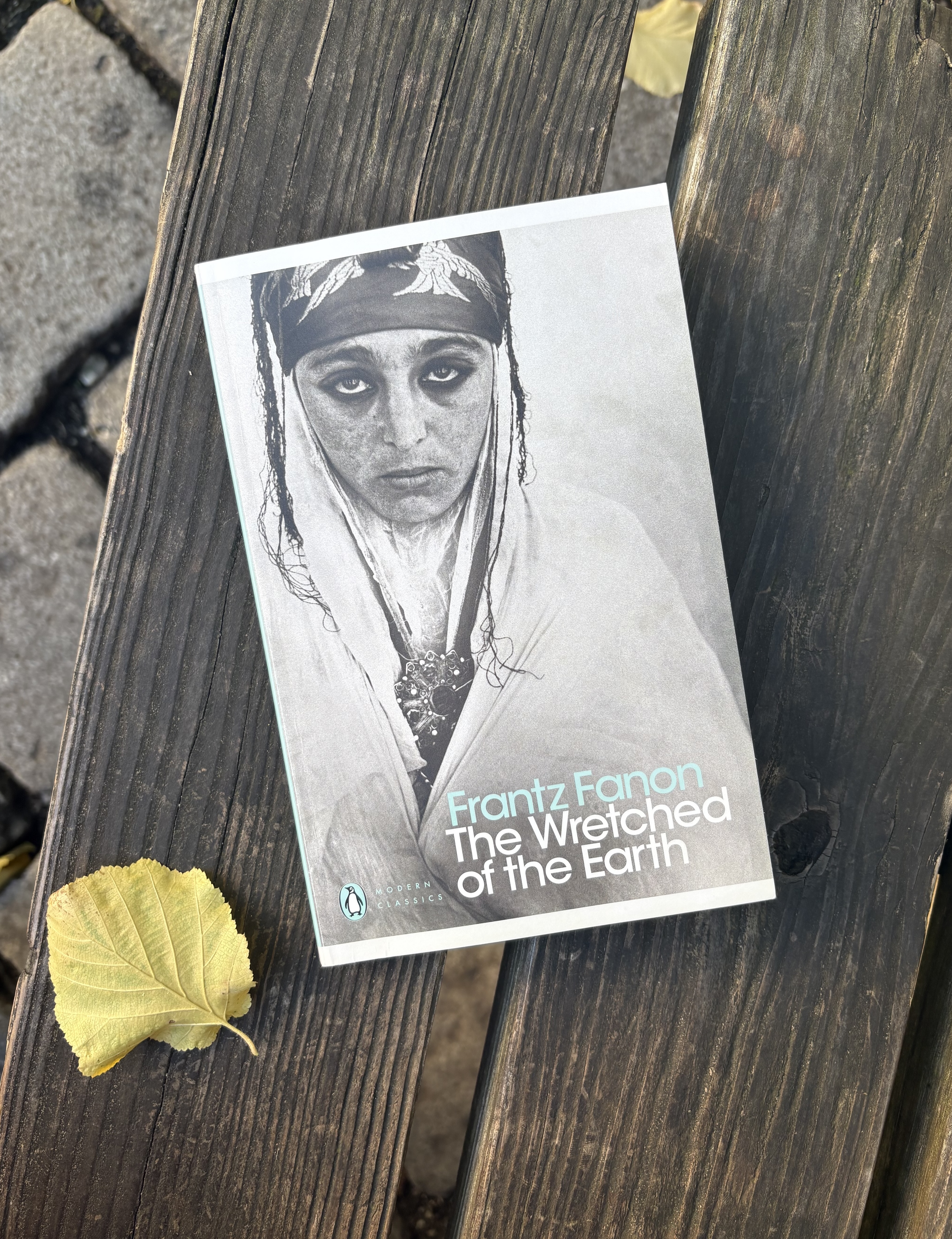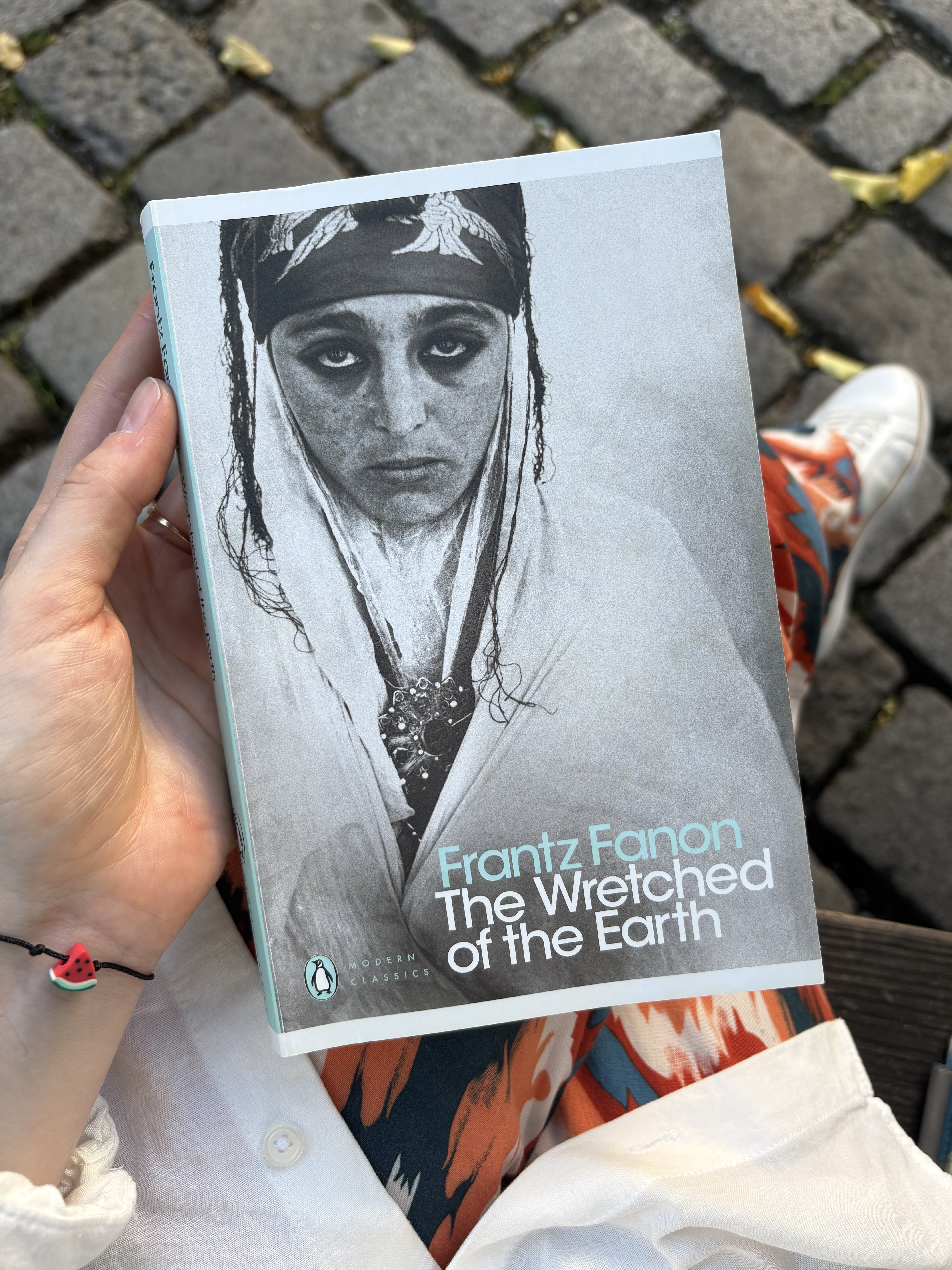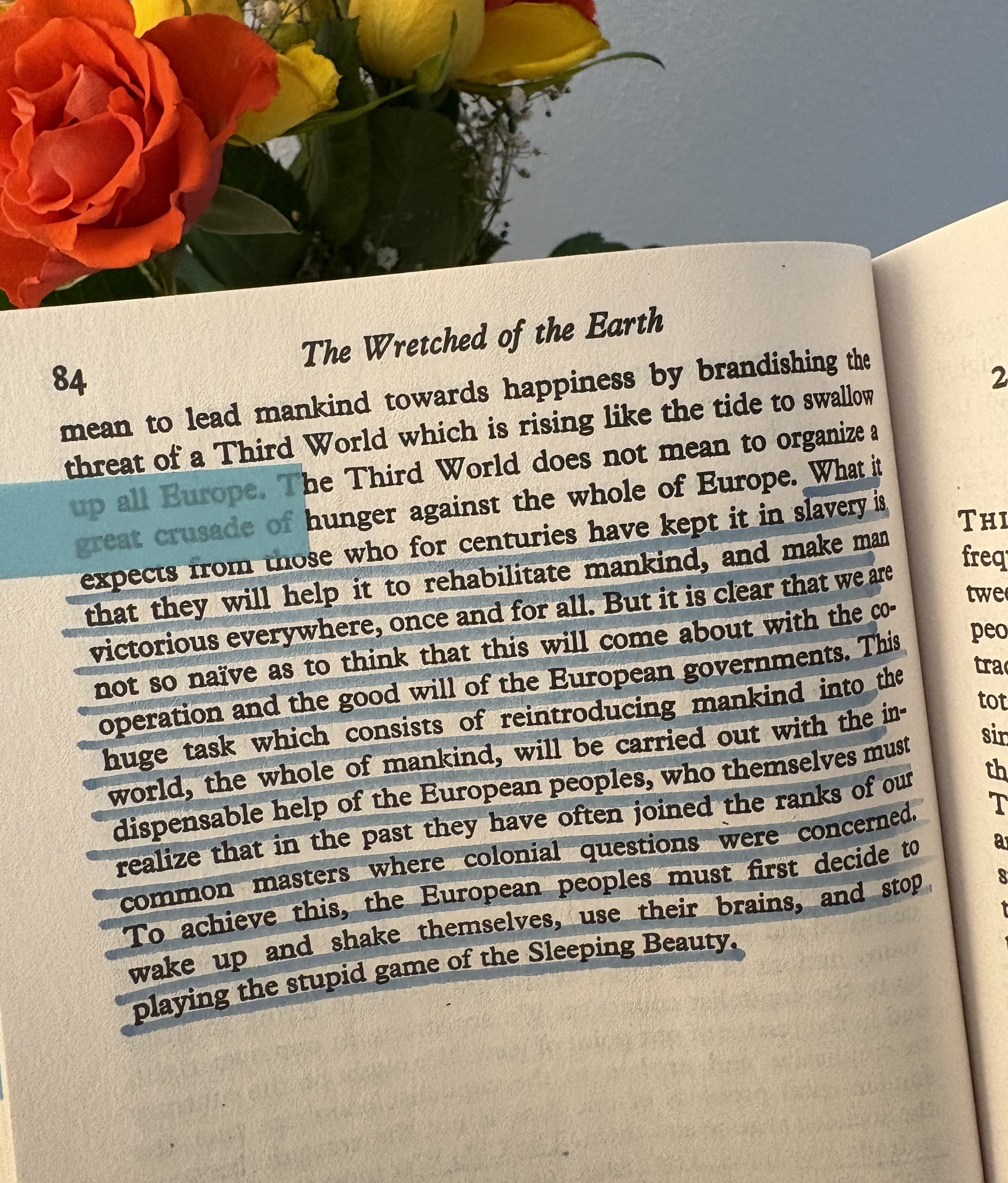
Sat, Sep 06, 2025
The Wretched of the Earth
One of the most influential texts on decolonization and the fight for justice.
A reading of Fanon that resonates with today’s ongoing struggles against occupation and oppression
Published in 1961, The Wretched of the Earth is a work by philosopher and psychiatrist Frantz Fanon, originally from the French colony of Martinique. In his opening and most widely discussed chapter, Fanon examines the process of liberation through the example of the Algerian war of independence, which he both witnessed firsthand and engaged with as a psychiatrist treating both victims and oppressors. His focus is not only on political change, but on the profound psychological transformation of the colonized as they move from submission to resistance.

Fanon opens with a powerful statement: decolonization is inevitably violent. Since colonialism was founded and upheld through violence, liberation cannot come from negotiation or legal reform—it must use the same force that created colonial domination. In the colonial order, settlers live in privilege and security, while the colonized are reduced to poverty, disorder, and dehumanization, treated as less than human. Through this system, the native learns that violence is the only language the colonizer understands. Liberation, then, appears possible only through force, a mirror of the oppressor’s logic. For Fanon, this is not irrational but a profound political and psychological awakening: the colonized reject colonial justice outright. Violence, he insists, is not only political but also psychologically transformative—it breaks the inferiority complex of the colonized and restores a sense of dignity, confidence, and agency. To explore this further, Fanon distinguishes three groups within the colonized population: the native workers valued only for their labor, the colonized intellectuals who, often influenced by colonial education, end up supporting and justifying Western values rather than challenging them; and the lumpenproletariat—the marginalized poor—whom he identifies as the most likely to ignite revolutionary violence.

Many of the issues Fanon raised remain controversial in Western discourse—above all, the role of violence in the struggle for liberation. What stands out is the deep hypocrisy of Western powers, who colonized, partitioned, and destroyed entire regions through systematic violence, yet now condemn the oppressed when they resort to armed resistance. In global narratives, the colonizer’s violence is framed as “necessary” or “defensive,” while the violence of the colonized is denounced as “terrorism.” International law itself recognizes the legitimacy of armed struggle against colonial domination, foreign occupation, and racist regimes (the 1979 UNGA resolution 34/44), yet the same powers that drafted these principles often ignore them when they apply to people resisting Western-backed oppression.
Fanon’s argument, then, is not just a historical reflection but a challenge to confront these double standards that we face still today: if violence built the colonial world, it cannot be denied to those who seek to tear it down in the name of dignity and freedom.